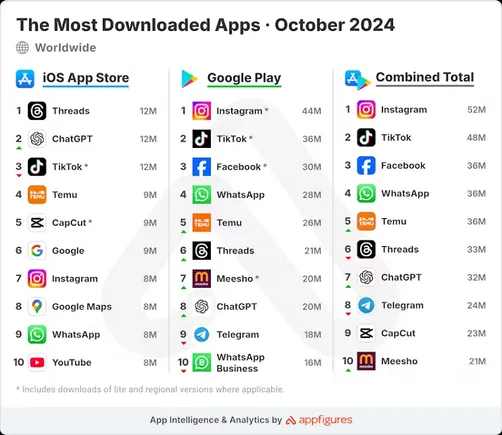Reading Time: 4 minutes
When we wanted to sell our home in 2019, it was, of course, a massive project. And like any large project involving multiple people, aspects and challenges, the best approach was to break it down and review the various steps and requirements.
We needed to:
- think about what immediate repairs or upgrades can and should and must be done;
- evaluate neighboring properties and their value in relation to ours;
- line up external professionals and internal resources;
…all coordinated so that each step informed the next and resulted in not only a property listing, but a successful listing and sale due to having all of the correct elements in place and done in time.
For instance, when we were auditing neighboring properties we quickly found that virtually every other house in the neighborhood had a deck out back that helped accentuate the incredible view of the sun setting over the Missouri River, so that was an upgrade we needed to budget for, coordinate, and complete prior to listing the property.
Without that audit and plan in place, we wouldn’t have been able to sell the house so quickly or above asking price.
Similarly, it’s time now to begin the process of integrating and implementing artificial intelligence throughout your business and marketing. It’s going to require time, investments, and coordination of many people across multiple departments.
Where do you begin?
Just like selling a house, you start with an evaluation and audit, and let that inform a resulting plan.
And stay tuned, I have a free companion resource for you!
Understanding Your AI-Readiness: A Step-by-Step Guide
Once you’ve made the decision to dive into AI in marketing and throughout your business, the next step is to assess where you currently stand. Think of this as your AI home inspection. Your potential buyers wouldn’t buy your house without checking its foundation, right? So smart sellers pay for theirn inspection early on to identify issues to correct. Similarly, you shouldn’t implement AI without a thorough audit of your current capabilities and needs.
Current Business and Marketing Objectives
First, let’s align your AI initiatives with your overarching business goals. This isn’t just about playing with shiny new tech; it’s about how AI can support and enhance what you’re already striving to achieve. Are you looking to boost lead generation, enhance customer engagement, or streamline operations? Knowing your objectives is crucial because AI, like any good tool, works best when it has a clear purpose.
Data Collection and Management
Next up, data. AI feeds on data the way a car runs on gas. Without it, you’re not going anywhere. But not just any data will do—you need high-quality, well-organized data. Imagine trying to sell your house without knowing if the roof leaks or the basement floods. You need to know what data you collect, how it’s stored, and how accessible it is. Customer demographics, purchase histories, interaction logs—all these can fuel your AI engine.
Existing Marketing Technologies and Tools
What tools are you currently using? CRM systems, email marketing platforms, analytics tools—they all play a part in your AI journey. Think of them as the existing appliances in your home. Are they outdated or perfectly functional? Can they integrate with new AI technologies, or will you need to upgrade?
Previous AI Experiences
Have you dabbled in AI before? Maybe you’ve used chatbots or personalized recommendations. These experiences are like having a previous renovation project under your belt. They can provide valuable insights into your readiness and highlight potential challenges. Learn from what worked and what didn’t to make your next AI project smoother.
Main Marketing Challenges
Every home has its quirks, and every marketing department has its pain points. Identifying these challenges will help you pinpoint where AI can be most effective. Are you struggling with customer segmentation, content personalization, or campaign effectiveness? Knowing where the problems lie will guide your AI solutions to where they’re needed most.
Budget for AI Solutions
Let’s talk money. Implementing AI isn’t cheap, but it’s an investment in your future. Just like budgeting for that deck to showcase the sunset view, you need to know what you can spend on AI. Financial resources will determine the scope and scale of your AI deployment. Plan wisely to ensure the best return on investment without overspending. (Here’s an online AI ROI Calculator you can use.)
AI Literacy within the Marketing Team
Your team’s familiarity with AI will influence how smoothly the adoption process goes. If your team is new to AI, they’ll need training, just like you’d need a crash course on how to maintain that new deck. Gauge their knowledge level and plan for the necessary education to ensure everyone is on board and up to speed.
Expectations from AI Integration
What do you hope to achieve with AI? Automation of repetitive tasks, deeper customer insights, new customer experiences—set realistic goals. This will help in managing expectations and measuring success. It’s like knowing what you want out of your home improvement project—clear goals lead to better outcomes.
Data Privacy and Compliance
Before you dive into AI, ensure your data practices comply with legal standards like GDPR or CCPA. Think of it as making sure your home improvements meet local building codes. It’s not glamorous, but it’s essential to avoid costly fines and keep your customers’ trust.
Defining Success Metrics
Finally, how will you measure success? Defining metrics upfront is critical. Whether it’s increased sales, improved customer engagement, or operational efficiency, having clear indicators will help you evaluate the impact of AI. It’s like knowing you’ve succeeded when your house sells above asking price.
Additional Considerations
As you prepare for AI integration, don’t forget about data security. Ensure your data is protected against breaches. Plan for change management—how will you handle the transition to AI? Evaluate potential AI vendors carefully, and always keep an eye on your long-term vision for AI within your company.
Conclusion and Next Steps
By now, you should have a clearer picture of your AI readiness. Just like prepping a house for sale, it’s all about thorough evaluation and planning. Take these insights, start your AI-readiness audit, and create a roadmap tailored to your business needs. And remember, we’re all in this together—share your experiences and insights with our community.
Ready to dive into AI? Start with this audit and let’s transform your marketing strategy together.
I’ve assembled a worksheet that you can print and fill out. Put it to use helping your business get ahead of the AI Revolution.
Related
Discover more from The Social Media Hat
Subscribe to get the latest posts sent to your email.










